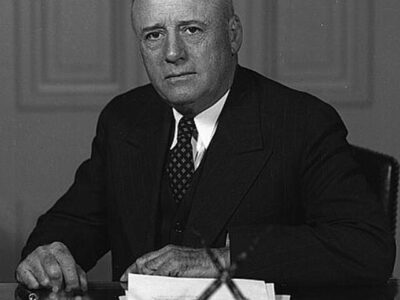Breaking News: California Chamber of Commerce Sues over AB 32 Auction
The California Chamber of Commerce has launched the first industry lawsuit against the auction portion of California’s cap-and-trade program on the basis that auctioning off allowances constitutes an unauthorized, unconstitutional tax. The complaint was filed today in Sacramento Superior Court and seeks to stop the auction and have the auction regulations declared invalid. The Chamber argues that the Legislature never authorized the Air Resources Board — the agency that administers and designed the cap-and-trade program — to raise “fees” or “taxes” through an auction mechanism. This argument, the Chamber contends, is especially strong because taxes can only be raised, under the California Constitution, with a two-thirds vote of the Legislature (or with a majority vote for special taxes; see explanation here).
Cara Horowitz and I have just skimmed the complaint and supporting memorandum of points and authorities and have two initial reactions. The first is that it is unclear whether the auction even constitutes a tax: regulated parties with compliance obligations, many of whom are allocated allowances for free, need not buy the allowances. Indeed conceivably all of the allowances could be purchased by a non-profit environmental group and retired in order to keep an emitter from purchasing them in order to emit more greenhouse gases. Moreover an emitter subject to a compliance obligation under the cap-and-trade program could cut its emissions rather than purchase allowances at auction to cover emissions. Thus the auction could be viewed as akin the selling off of state property, not the levying of a tax. If the auction is not a tax, the lawsuit should be dismissed.
Second, AB 32 grants CARB significant discretion in designing policies to cut the state’s greenhouse gas emissions. The legislature clearly contemplated cap-and-trade as one of those measures and indeed included language in AB 32 authorizing “market mechanisms” to cut emissions. At the time cap-and-trade passed it was clear that CARB would need to make numerous design choices, including which entities would be included in the program, which gases would be covered and whether allowances would be given away or auctioned. There is no indication that the Legislature meant to cabin CARB’s discretion in any of these areas. We think a court is likely to defer to CARB about the design choices it has made, including the choice to auction a portion of the allowances. Indeed just this year the Legislature passed legislation directing the state’s Department of Finance and CARB to develop a plan to invest auction proceeds and to set up an account for the deposit of auction funds. If the Legislature did not intend to provide CARB with discretion to auction allowances it seems hard to imagine it would have passed legislation to assist in the processing of auction revenues. The central basis of the lawsuit — that the auction is unauthorized — seems to us to be quite weak.






11 Replies to “Breaking News: California Chamber of Commerce Sues over AB 32 Auction”
Comments are closed.